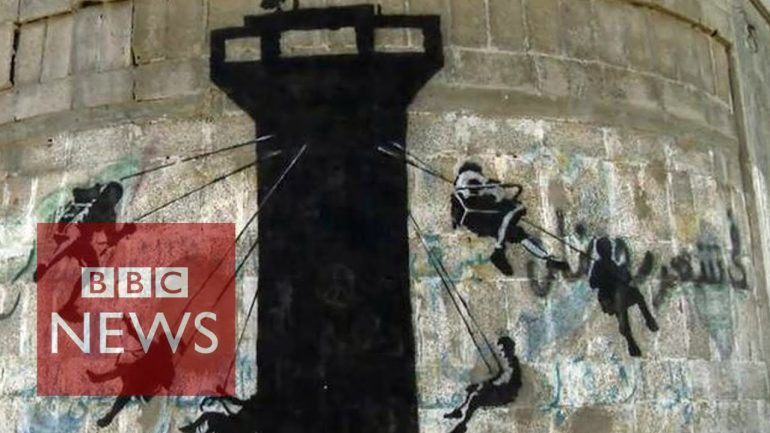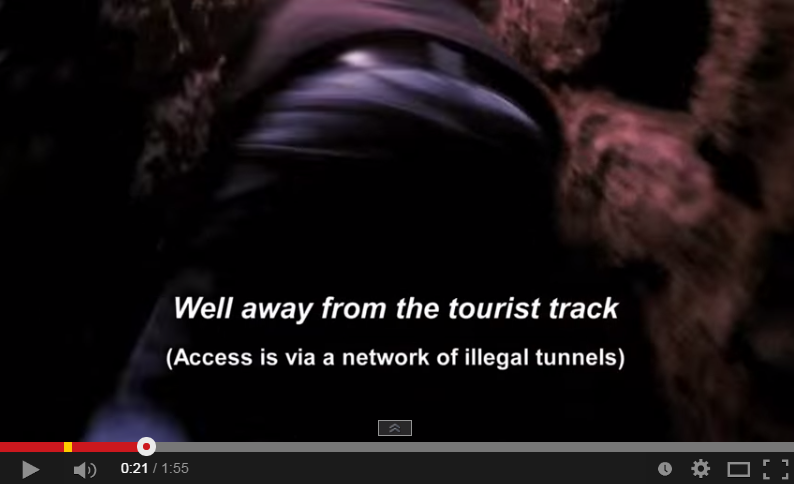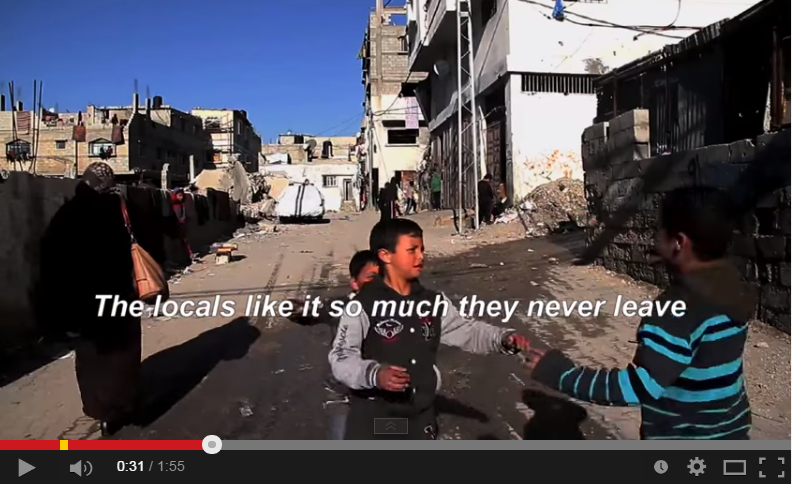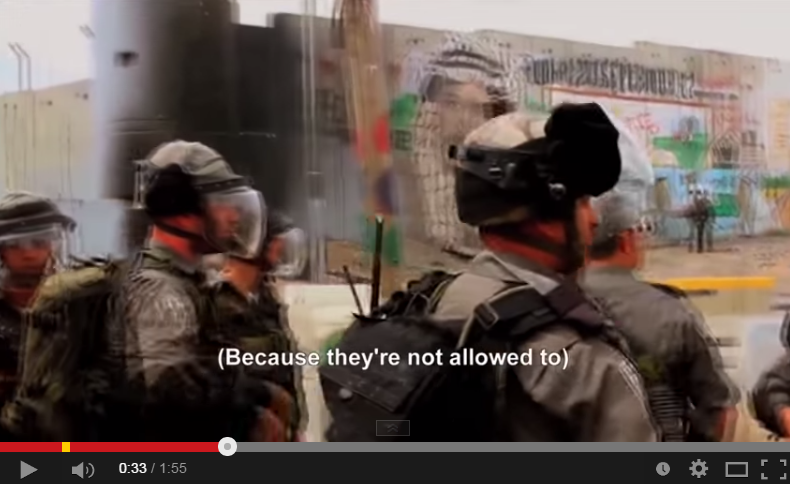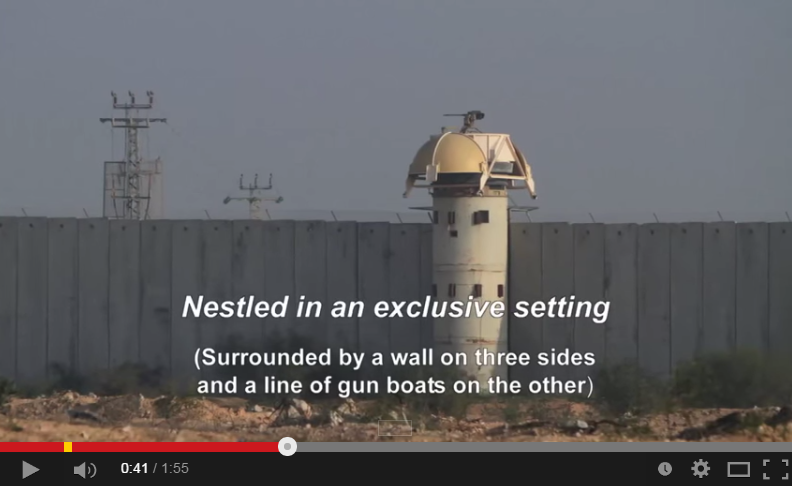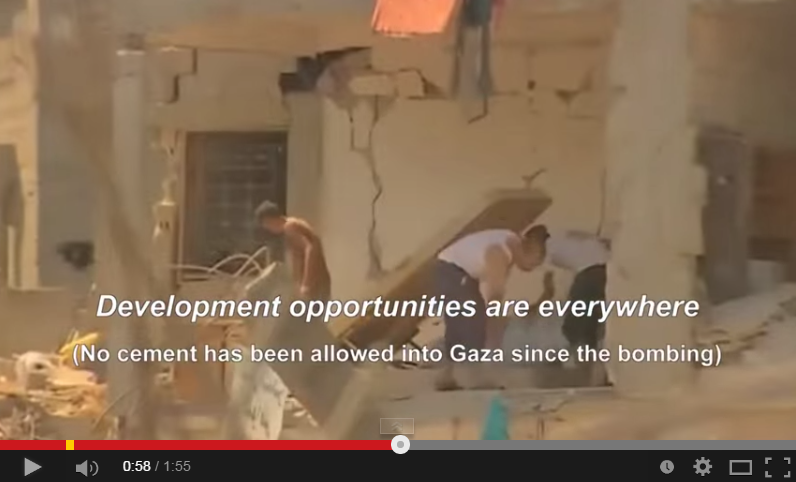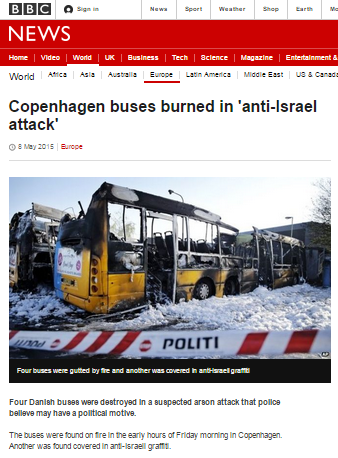The Oxford dictionary defines a documentary as:
“A film or television or radio programme that provides a factual report on a particular subject.”
The key word in that definition is of course ‘factual’: defined as “concerned with what is actually the case”.
So, when the BBC describes something as a documentary, it is in fact telling its audience that the information in that film is true and endorsing its content as fact.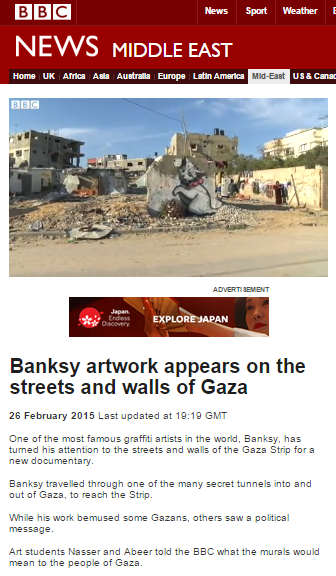
A filmed report which appeared on the BBC News website (as well as on BBC television news programmes) on February 26th was accompanied by a synopsis which opens:
“One of the most famous graffiti artists in the world, Banksy, has turned his attention to the streets and walls of the Gaza Strip for a new documentary.”
On its Youtube channel, BBC News presented the same report under the following title:
“Gaza: Banksy artwork for a new documentary – BBC News”
However, that short video is not a documentary at all, but a puerile exercise in propaganda which propagates existing clichés and politically motivated allegations about the Gaza Strip which are not based in fact.
(footage from Qalandiya checkpoint – not the Gaza Strip)
The BBC’s own filmed report on the topic – by Rushdi Abualouf – also promotes inaccurate clichés such as the notion of a “siege” on the Gaza Strip and “occupation” which has not existed there for almost a decade.
“I think, yes, it’s clear that the watchtower means the siege and means occupation.”
The BBC was far from the only media organization to provide PR for Banksy’s propaganda stunt, as our colleagues at CAMERA have documented. However, other media outlets are not bound by editorial guidelines which state, inter alia:
“We must not knowingly and materially mislead our audiences with our content.”
By presenting a piece of agitprop as a “documentary” the BBC has, however, done exactly that.

